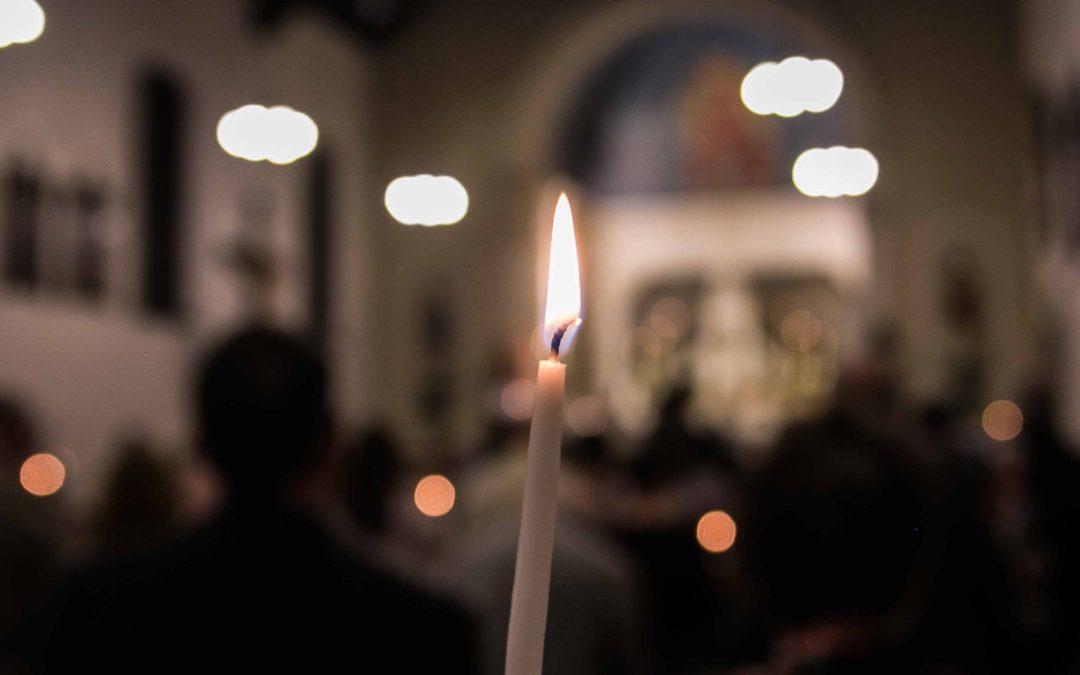Dear Friends,
As an Easter letter this year I give you parts of a reflection written and published by Dorothy Sayers in 1938 in which she addresses the age-old problem of why God allows people to hurt each other. I wish there was space here to reproduce the whole thing. These sections are from the part entitled, The Triumph of Easter:
“O FELIX CULPA!” said Augustine of Hippo, rather dangerously, with reference to the sin of Adam. “O happy guilt, that did deserve such and so great a Redeemer!”
It is difficult, perhaps, to imagine a pronouncement that lays itself more open to misunderstanding. It is the kind of paradox that bishops and clergy are warned to beware of uttering from the pulpit. But, then, the Bishop of Hippo was a very remarkable bishop indeed, with a courage of his convictions rare in highly-placed ecclesiastical persons…
The problem of sin and evil is, as everybody knows, one which all religions have to face, especially those that postulate an all-good and all-powerful God. “If,” we say readily, “God is holy and omnipotent, He would interfere and stop all this kind of thing”—meaning by “this kind of thing” wars, persecutions, cruelties, Hitlerism, Bolshevism, or whatever large issue happens to be distressing our minds at the time. But let us be quite sure that we have really considered the problem in all its aspects.
“Why doesn’t God smite this dictator dead?” is a question a little remote from us. Why, madam, did He not strike you dumb and imbecile before you uttered that baseless and unkind slander the day before yesterday? Or me, before I behaved with such cruel lack of consideration to that well-meaning friend? And why, sir, did He not cause your hand to rot off at the wrist before you signed your name to that dirty little bit of financial trickery?
…The Church, at any rate, says that man’s will is free, and that evil is the price we pay for knowledge, particularly the kind of knowledge which we call self-consciousness. It follows that we can, by God’s grace, do something about the pattern. Moreover, God Himself, says the Church, is doing something about it—with our co-operation, if we choose, in despite of us if we refuse to co-operate—but always, steadily, working the pattern out.
And here we come up against the ultimate question which no theology, no philosophy, no theory of the universe has ever so much as attempted to answer completely. Why should God, if there is a God, create anything, at any time, of any kind at all? That is a real mystery, and probably the only completely insoluble mystery there is. The one person who might be able to give some sort of guess at the answer is the creative artist, and he, of all people in the world, is the least inclined even to ask the question, being accustomed to take all creative activity as its own sufficient justification…
When Judas sinned, Jesus paid; He brought good out of evil, He led out triumph from the gates of hell and brought all mankind out with Him; but the suffering of Jesus and the sin of Judas remain a reality. God did not abolish the fact of evil: He transformed it. He did not stop the crucifixion: He rose from the dead…
Judas committed the final, the fatal, the most pitiful error of all; for he despaired of God and himself and never waited to see the Resurrection. Had he done so, there would have been an encounter, and an opportunity, to leave invention bankrupt; but unhappily for himself, he did not. In this world, at any rate, he never saw the triumph of Christ fulfilled upon him, and through him, and despite of him. He saw the dreadful payment made, and never knew what victory had been purchased with the price.
All of us, perhaps, are too ready, when our behavior turns out to have appalling consequences, to rush out and hang ourselves. Sometimes we do worse, and show an inclination to go and hang other people. Judas, at least, seems to have blamed nobody but himself, and St. Peter, who had a minor betrayal of his own to weep for, made his act of contrition and waited to see what came next. What came next for St. Peter and the other disciples was the sudden assurance of what God was, and with it the answer to all the riddles.
If Christ could take evil and suffering and do that sort of thing with them, then of course it was all worthwhile, and the triumph of Easter linked up with that strange, triumphant prayer in the Upper Room, which the events of Good Friday had seemed to make so puzzling. As for their own parts in the drama, nothing could now alter the fact that they had been stupid, cowardly, faithless, and in many ways singularly unhelpful; but they did not allow any morbid and egotistical remorse to inhibit their joyful activities in the future.
Now, indeed, they could go out and “do something” about the problem of sin and suffering. They had seen the strong hands of God twist the crown of thorns into a crown of glory, and in hands as strong as that they knew themselves safe. They had misunderstood practically everything Christ had ever said to them, but no matter: the thing made sense at last, and the meaning was far beyond anything they had dreamed…
Happy Easter!
Fr. Damian



